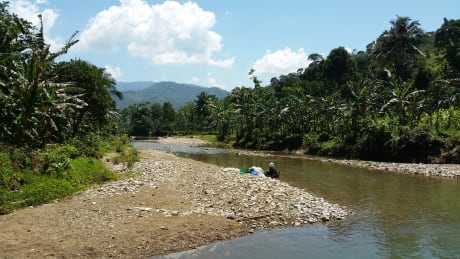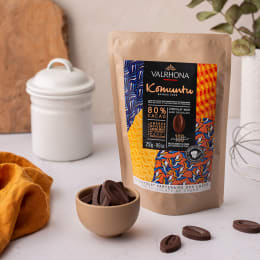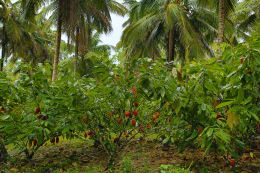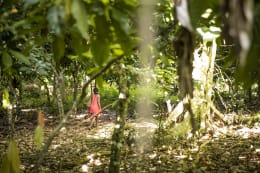Promoting agroforestry in Haiti
In 2017, together with its partner Feccano (Fédération des Coopératives Cacaoyères du Nord) and French international NGO Agronomes et Vétérinaires Sans Frontières (www.avsf.org), Valrhona decided to launch a project to regenerate mixed-crop gardens (“jardins créoles" or agricultural plots) for the period up to 2020.
Our support to the agroforestry project in Hait
This project emerged out of our work to identify priority actions that would bolster Feccano and its member-producers’ sustainability.
This project also aims to demonstrate that garden regeneration (which includes tree pruning, grafting, replanting, new food crops, composting, nurseries and so on) is one of the solutions that can be implemented on a local, regional and national level to revitalize and sustain traditional cocoa-based agroforestry systems in Haiti. The cocoa trees in the mixed-crop gardens are aging and this has an impact on their productivity - and families’ incomes with it.
This multi-disciplinary approach intends to intensify ecological diversity and will, of course, include cocoa, as well as other crops such as fruit (mango, avocado, breadfruit and so on) or vegetables (taro, yams, cassava and more) which contribute to families’ food security!

A project with economic impact
Moreover, the project is being backed up by participative social and economic research, which will provide precise information about the financial impact on grower families’ income.
To date, gardens taking part in the project have seen a 40% increase in productivity. Final results are expected by the end of 2020.
Results at the end of 2019
- An advisory service made up of an agricultural engineer, three technicians, 28 link producers (called “brigadiers”) and 40 master grafters works on the ground
- 147 plots and over 125 producers
- 2,000 cocoa plants were grown and distributed
- 6,000kg of compost has been produced and distributed
- 200 liters of organic fertilizer have been produced and distributed


